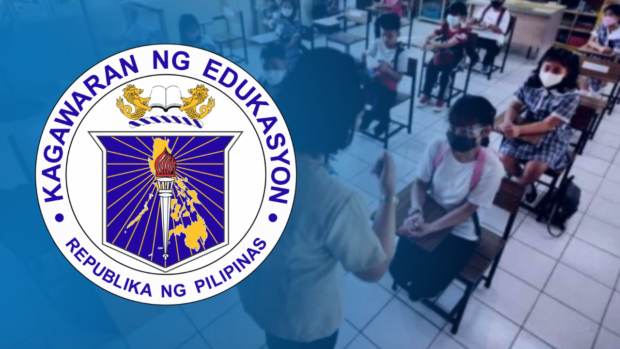DepEd plans to transfer feeding program to LGUs
MANILA, Philippines — The Department of Education (DepEd) is looking into delegating to local government units (LGUs) the implementation of its School-Based Feeding Program (SBFP) by 2028.
According to documents obtained by the Inquirer, DepEd is studying three options: no devolution, partial devolution, and full devolution to the LGUs.
No devolution means the department will retain SBFP funds, although the LGUs will allot their own funds for “central kitchens” which will be established in their areas.
The local governments will also supervise these kitchens to reduce the workload of teachers in the preparation of meals for their students.
Under full devolution, on the other hand, the local governments will fund the purchase of food items, but the DepEd central and regional offices will take care of other support funds.
DepEd, however, is considering partial devolution for now, under which first to fourth-class municipalities will be put in charge of the feeding program while the department will continue to oversee funds for fifth and sixth-class municipalities.
In an interview, Maria Corazon Dumlao, DepEd School Health Division chief, said that plan is still being discussed since the department must also consider the resources available among the local governments.
Food products
Before the program was institutionalized through a law in 2018, Dumlao said it only had around P30 million in funds. Beneficiaries to be provided hot meals were selected based on their body mass index.
But upon the recommendation of the National Nutrition Council, nutritious food products were served instead of hot meals, and these consisted of “enhanced” Nutribun (e-Nutribun) developed by the Department of Science and Technology’s Food Nutrition and Research Institute and other ready-to-eat meals like champorado and milk.
Two years into the pandemic, funding for the feeding program saw a significant reduction from P6 billion in 2021 to half that amount, or P3.3 billion this year.
Dumlao said the budget cut also reduced the number of feeding days from the prescribed 120 days to only 30 consecutive school days.
With DepEd set to continue its feeding program, its spokesperson lawyer Michael Poa said: “The good thing about the SBFP… is that it addresses three things. First is the nutrition of our learners, which, as proven, when they are nourished, they are more active and they participate more in classes.”
The program also keeps them in school because they are more inclined to attend classes in exchange for free food, he added.
Furthermore, “we also help the agricultural sector of the country because the produce for Nutribun is locally sourced. We helped the learners and we also supported the agricultural sector,” Poa said.
Cost per meal
Under its current budget of P3.3 billion, DepEd feeds up to 3.5 million learners nationwide, with an estimated cost per meal of P18 for each student.
By next year, students will get a meal worth P20 each under the proposed P5.6-billion budget for the department.
DepEd data showed that of the 2021-2022 contract value for the nutritious food packs, “adopters” (accredited bakers) of e-Nutribun received P1.14 billion while small and medium-sized enterprises got P1.15 billion.
Farmer groups and cooperatives received P217 million, or 8.66 percent of the contract value. “The farmer groups and cooperatives also supply the raw materials requirement (vegetables, fresh fruits, root crops) to e-Nutribun adopters, SMEs, and local corporations,” the DepEd said.
Central kitchens
“The main objective of the feeding [program] aside from the nutrition is to highlight the improvements in the learning of the students,” Dumlao said.
The DepEd is also looking into creating more central kitchens to relieve its personnel of the burden of preparing school meals “so they can concentrate on their curricular and co-curricular tasks in delivering quality education.”
A central kitchen refers to a school or LGU-supervised facility that will centralize the procurement and preparation of food for a school or a group of schools.
The concept of a central kitchen in the feeding program is not new, as the Valenzuela City government adopted the model as early as 2013.
Then Valenzuela Mayor (now Sen.) Sherwin Gatchalian formally opened a central kitchen in Malinta to feed around 6,000 undernourished students from the city’s 39 public elementary schools.
That initiative was run by volunteers, including parents who cooked and prepared the daily meals, as well as the Ateneo Center for Educational Development and Ateneo de Manila University office.
Based on DepEd’s prospects for this school year and beyond, the “ideal setup” would be at least one central kitchen in a DepEd district per municipality or clusters of schools in big cities to cover an average of at least 1,000 beneficiaries.
RELATED STORY
